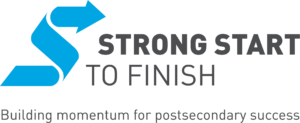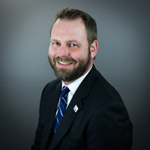
Systems of higher education are unique in structure yet universal in aspiration to provide a quality learning experience for all members of the campus community. A quality community is one where faculty and staff grow professionally, where administrators advance their understanding while honing their ability to respond to identified needs, where support personnel feel honored for the value they provide and where students’ experiences propel them forward as they learn and develop new habits of thought.
This aspirational state of being is supported not just by human and fiscal resources, but also environmental factors. Such is the case with Strong Start to Finish systems, referred to as scaling sites. They entered the work, and indeed were selected, in part because of the conditions that enabled them to be successful. So just what are those conditions?
Honoring Existing Efforts
Each postsecondary system, and its institutional partners, have a history rich with initiatives. What has become clear is that if efforts are not aligned to existing efforts, they will hinder — rather than fuel —momentum. Nothing results in cries of institutional fatigue more than a new project with new goals and new ways of measuring success that are disconnected from existing strategic direction.
Strong Start to Finish is teaching us that honoring existing work by supporting its advancement is a critical condition for success. Scaling sites are funded to align existing efforts related to placement, program pathway development and math and English course redesign, among others, under one unifying initiative. The result has been either a rebranding of existing strands of work (Ohio Strong Start to Finish, for example) or augmenting existing work (such as The City University of New York’s Momentum Year). The result: nothing new, just an extension of the work already underway.
Providing the Flexibility to Act
Initiatives like Strong Start to Finish add clarity and stability because they require a thoughtful work plan within an organizing framework as part of the funding process. What makes Strong Start to Finish unique is that systems are engaged in a much different way. Rather than a third-party entity recruiting systems and institutions to participate in a project with a predefined set of actions, systems are asked about the work they completed to date and then given the opportunity to share how they would like to advance that work within an operating framework. The result allows scaling sites to grant their institutional partners the flexibility to develop implementation plans together that align with a framework for action. We see this in the State University of New York and the University System of Georgia, among other scaling sites.
By providing flexibility to act, systems use the funds in ways they think will support change. This type of unrestricted funding is similar to funding allocated by governors and legislatures and could be allocated in a similar way. In fact, Strong Start Arkansas is supported in part by the office of Gov. Asa Hutchinson.
Fostering a Consultative Community
Through such activities as monthly calls, attending each other’s events and annual learning convenings, scaling site leaders are developing professional relationships grounded in practice and professionalism. Each participant’s willingness to engage peers in meaningful, and at times vulnerable, conversations enables system leaders to address questions they would have otherwise had to face on their own.
The trust extended to these sites through Strong Start to Finish has been a point of differentiation as the systems talk about what they learned from prior work and how that informs their current efforts, rather than discussing how to fit a new initiative within an existing framework.
Together, these three conditions — honoring existing efforts, providing the flexibility to act and fostering a consultative community — allow for leaders to convene themselves and to counsel others. In the end, this develops a powerful ecosystem to inform the development of policy and practice.









